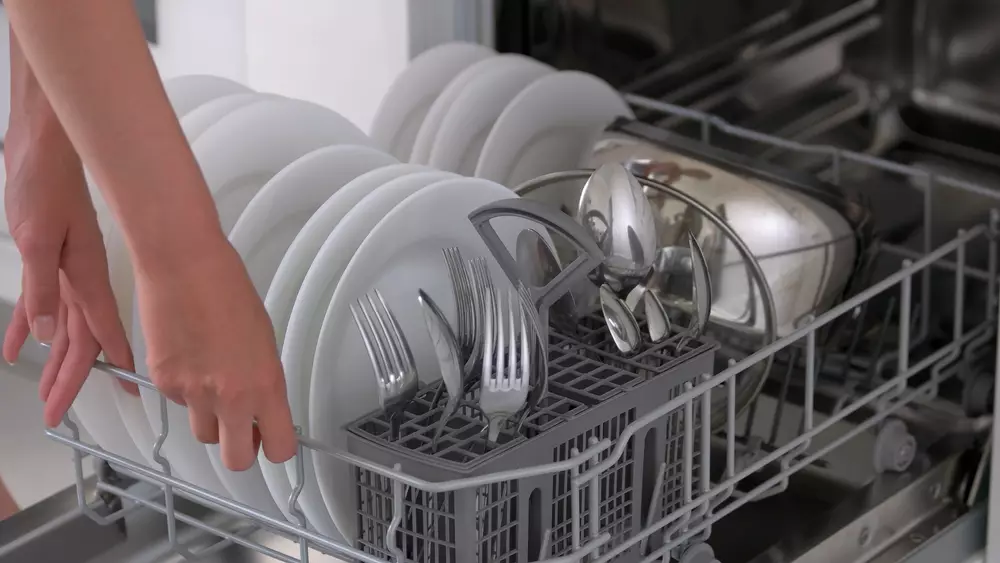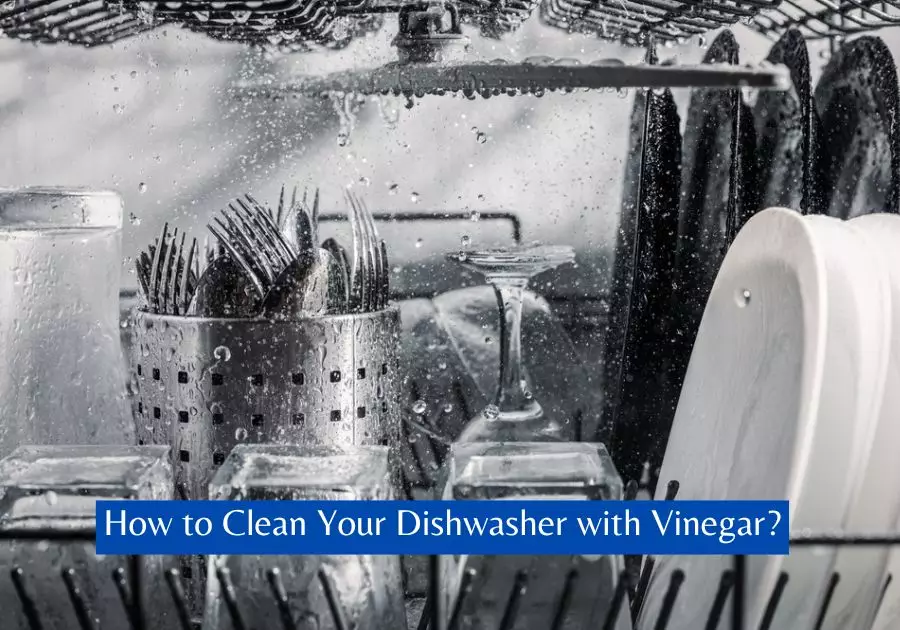Keeping your dishwasher clean is essential for its proper functioning and longevity. While dishwashers are meant to clean dishes, they also require regular cleaning to remove buildup, food debris, and other residues that can accumulate over time. One effective and affordable way to clean your dishwasher is by using vinegar.
Vinegar is a natural and non-toxic cleaning agent that can effectively remove stains, odors, and buildup in your dishwasher. In this article, we will provide you with step-by-step instructions on how to clean your dishwasher with vinegar and other tips to keep it in top shape.
The Benefits of Cleaning Your Dishwasher with Vinegar
Cleaning your dishwasher with vinegar has many benefits that can help improve its performance and prolong its lifespan. Here are some of the benefits of using vinegar to clean your dishwasher:
- Removes buildup: Over time, dishwashers can accumulate buildup of food debris, grease, and soap residue, which can affect its performance. Vinegar is an effective natural cleaner that can break down and remove these residues, leaving your dishwasher clean and fresh.
- Eliminates odors: Dishwashers can develop unpleasant odors due to the buildup of food debris and other residues. Vinegar is a natural deodorizer that can eliminate these odors and leave your dishwasher smelling fresh.
- Prevents limescale: If you have hard water in your home, your dishwasher may be prone to limescale buildup, which can affect its performance and shorten its lifespan. Vinegar is an effective natural remedy for limescale buildup and can help prevent it from forming in your dishwasher.
- Safe and non-toxic: Vinegar is a natural and non-toxic cleaning agent that is safe to use in your dishwasher. It is an eco-friendly alternative to harsh chemical cleaners that can be harmful to the environment and your health.
- Affordable: Vinegar is an inexpensive and readily available cleaning agent that can save you money on expensive dishwasher cleaners and repairs.

How Often to Clean a Dishwasher With Vinegar?
Cleaning your dishwasher with vinegar is a great way to keep it in good working condition and prevent the buildup of grime, grease, and other residues. But how often should you clean your dishwasher with vinegar? The answer depends on how often you use your dishwasher and the type of water you have in your home.
Generally, it’s recommended to clean your dishwasher with vinegar once a month or every three months, depending on the usage. If you use your dishwasher frequently, you may need to clean it more often to prevent the buildup of residues that can affect its performance.
If you have hard water in your home, which contains high levels of minerals such as calcium and magnesium, you may need to clean your dishwasher more often as these minerals can build up in your dishwasher and cause limescale and other problems. In this case, you may need to clean your dishwasher with vinegar every two to three months to prevent mineral buildup.
What You Will Need for the Cleaning Process
Cleaning your dishwasher with vinegar is a simple process that requires only a few basic items. Here is a list of what you will need:
- White vinegar: White vinegar is the best type of vinegar to use for cleaning your dishwasher. You will need about 2 cups of vinegar for the cleaning process.
- Baking soda (optional): Baking soda is a natural abrasive that can help remove tough stains and buildup in your dishwasher. You will need about 1/2 cup of baking soda if you choose to use it.
- Soft bristle brush: A soft bristle brush or toothbrush can be used to scrub away any stubborn buildup or stains in your dishwasher.
- Dish soap (optional): If your dishwasher has a lot of grease or grime buildup, you may want to use mild dish soap in addition to vinegar to help break down the buildup. Only a small amount of dish soap is needed.
- Microfiber cloth: A microfiber cloth can be used to wipe down the interior of your dishwasher after the cleaning process is complete.
Step-by-Step Guide to Cleaning Your Dishwasher with Vinegar
Cleaning your dishwasher with vinegar is a simple process that can be done in a few easy steps. Here is a step-by-step guide to cleaning your dishwasher with vinegar:
- Empty your dishwasher: Start by emptying your dishwasher of any dishes or utensils.
- Check the dishwasher filter: Remove the dishwasher filter and check for any debris or buildup. Clean the filter if necessary.
- Place a cup of vinegar on the top rack: Place a cup of white vinegar on the top rack of your dishwasher.
- Run the dishwasher: Run your dishwasher on the hottest cycle available. This will help the vinegar penetrate and break down any buildup or residue in the dishwasher.
- Optional: Use baking soda and dish soap: If you have stubborn buildup or stains in your dishwasher, you can sprinkle about 1/2 cup of baking soda on the bottom of the dishwasher and add a small amount of dish soap. Then, run the dishwasher on the hottest cycle.
- Wipe down the dishwasher: After the cycle is complete, use a microfiber cloth to wipe down the interior of your dishwasher. Pay particular attention to the corners, crevices, and rubber seals where debris and buildup can accumulate.
Once you have finished cleaning your dishwasher, run a quick rinse cycle to remove any remaining vinegar or baking soda residue.
Tips to Keep Your Dishwasher Clean and Maintained
Cleaning your dishwasher with vinegar is an important part of its maintenance, but there are other things you can do to keep it in good condition. Here are some tips to help you keep your dishwasher clean and maintained:
- Scrape and rinse dishes before loading: To prevent food debris and grease from building up in your dishwasher, make sure to scrape and rinse your dishes before loading them into the dishwasher.
- Use the right dishwasher detergent: Make sure to use a high-quality dishwasher detergent that is designed for your specific dishwasher model. Using the wrong detergent can cause buildup and reduce the effectiveness of your dishwasher.
- Run hot water before starting the cycle: Run hot water in your sink for a few seconds before starting the dishwasher cycle. This will ensure that the dishwasher starts with hot water, which helps to dissolve and remove grease and debris.
- Clean the dishwasher filter: The dishwasher filter should be cleaned regularly to prevent buildup and clogs. Refer to your dishwasher’s manual for instructions on how to clean the filter.
- Wipe down the interior of the dishwasher: Use a microfiber cloth to wipe down the interior of the dishwasher after each use. Pay particular attention to the corners, crevices, and rubber seals where debris and buildup can accumulate.
- Run a vinegar rinse cycle: Once a month, run a rinse cycle with vinegar to help prevent buildup and eliminate odors. Simply fill a glass or dishwasher-safe measuring cup with about 2 cups of white vinegar and place it on the top rack of your dishwasher. Run the dishwasher on the hottest cycle possible.
Conclusion
Cleaning your dishwasher with vinegar is a simple and effective way to keep it in top condition. With just a few basic items and a step-by-step process, you can remove tough stains, buildup, and odors from your dishwasher.
By incorporating regular dishwasher maintenance tips such as scraping and rinsing dishes before loading, using the right detergent, cleaning the dishwasher filter, wiping down the interior, and running a vinegar rinse cycle, you can help to prevent buildup and keep your dishwasher functioning properly for many years to come. So, don’t neglect your dishwasher’s maintenance and give it the attention it deserves to ensure it remains a valuable appliance in your home.
